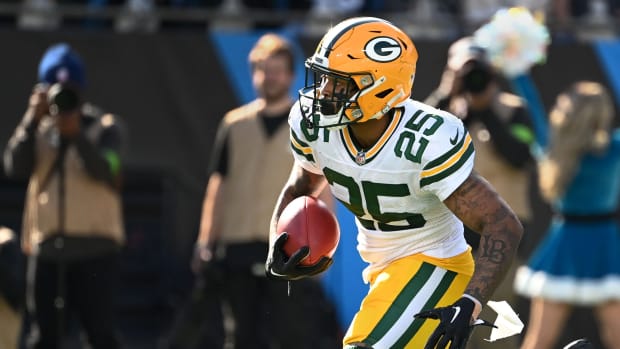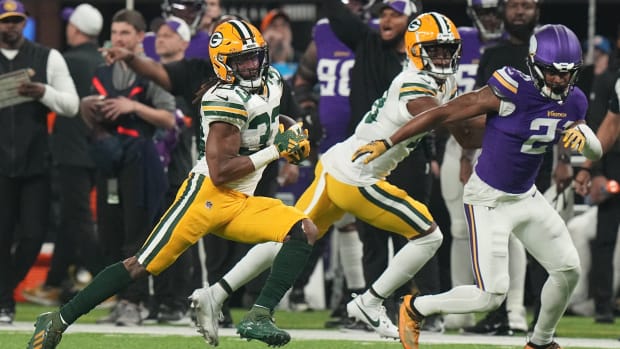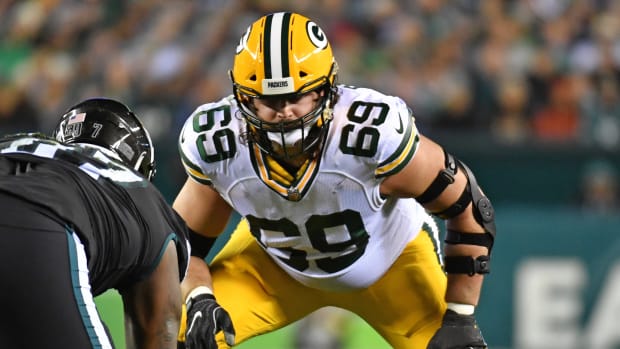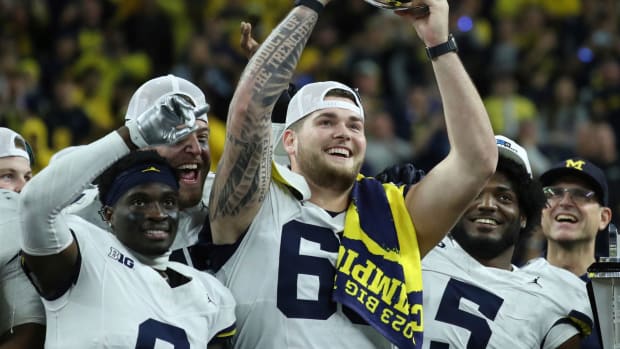Could the Rodgers Era Be Down to Two Seasons?
GREEN BAY, Wis. – Brett Favre’s “gut” tells him Aaron Rodgers will not finish his career with the Green Bay Packers.
Logic and finances say that, as well.
As the Green Bay Packers’ first-round pick, Jordan Love will receive the standard four-year contract with a fifth-year team option. That fifth-year option must be triggered after his third season, or after the 2022 season. That option isn’t cheap. For reference, in 2019, Jameis Winston and Marcus Mariota played under fifth-year options worth $20.9 million – the average of the league’s 10 highest-paid quarterbacks.
Would the Packers trip that trigger having not seen Love in action beyond August preseason games and the practice field? That seems unlikely.
From the team’s perspective, making the transition before the 2022 season not only works best for judging Love but moving on from Rodgers’ contract.
Before the 2018 season, Rodgers signed a four-year, $134 million contract extension. Due to a December renegotiation meant to create much-needed salary-cap space for 2020, Rodgers has cap numbers of $36.35 million (with a base salary of $14.7 million) in 2021, $39.85 million (with a base salary of $25 million) in 2022 and $28.4 million (with a base salary of $25 million) in 2023.
The key number isn’t the base salary. Rather, it’s the signing bonus. The original deal included a $57.5 million signing bonus. The renegotiation turned $14.26 million of roster bonus into signing bonus. Prorated over the life of the contract, those bonuses account for annual cap charges of $14.35 million in 2020, 2021 and 2022 (but just $2.85 million in 2023). When a player is released or traded, the base salary is wiped off the books but the signing bonus is accelerated onto the cap all at once.
That means moving on from Rodgers now is an impossibility – not that there would be any reason to do so.
“The salary cap cost would be astronomical, $51.1 million, a loss of over $24 million in cap room,” wrote Jason Fitzgerald of the salary-cap site OverTheCap.com. “Green Bay does not even have the cap space to do that move. In theory, they could wait until after June 1 to make a trade, which would split that as $19.592 million this year and $31.556 million next season. Still it makes no sense for the organization.”
The Packers could move on after the 2020 season. If he’s released or traded before a $6.8 million roster bonus is due on the third day of the 2021 league-year, the Packers would absorb $31.556 million of dead cap but actually create $4.796 million of cap space, according to Over The Cap.
That real savings come into play between the 2021 and 2022 seasons. Releasing or trading Rodgers would result in $17.2 million of dead cap but provide $22.65 million in cap savings. That timing, in turn, would give Love a year to show what he’s got before the team had to decide on the fifth-year option. Moreover, it would allow the team to benefit from having its starting quarterback playing under the affordable final two years of his rookie contract. Based on the NFL’s rookie wage system, Love’s four-year deal will be worth about $12.4 million – a mere pittance in its totality compared to Rodgers’ annual payday.
“It’s those last two scenarios that make sense for the Packers,” Fitzgerald wrote of making the move after the 2020 or 2021 seasons. “Either you make the turn in 2021 if the team takes a step back this year or you definitely make it in 2022 to gain the most possible out of Love’s rookie years. If you are not doing that and Rodgers is going strong then you have to turn around and see what you can get for Love in a trade to recover some of the draft capital spent this year.”
Of course, this isn’t merely a dollars-and-cents decision. Rodgers remains one of the top quarterbacks in the NFL. Love, on the other hand, is an unproven commodity. Maybe Rodgers surges in Year 2 under coach Matt LaFleur. Maybe Love will bust – quite commonplace among quarterbacks taken in his area of the draft.
“The reason that back when we moved from Brett to Aaron was because of what Aaron had done his first three years here, and that’s got to happen with Jordan,” general manager Brian Gutekunst said after the draft. “He has to be able to do the work and he has to do that for us to make us believe that he can be a starting quarterback in the National Football League. We drafted him in the first round, we certainly think he has that kind of talent. But that’s not enough in the National Football League.”
If Love does pan out – the Senior Bowl’s Jim Nagy said Love could solidify the Packers’ status as a contender to 2040 – we very well could be looking at the final two years of Rodgers’ brilliant run in Titletown.




